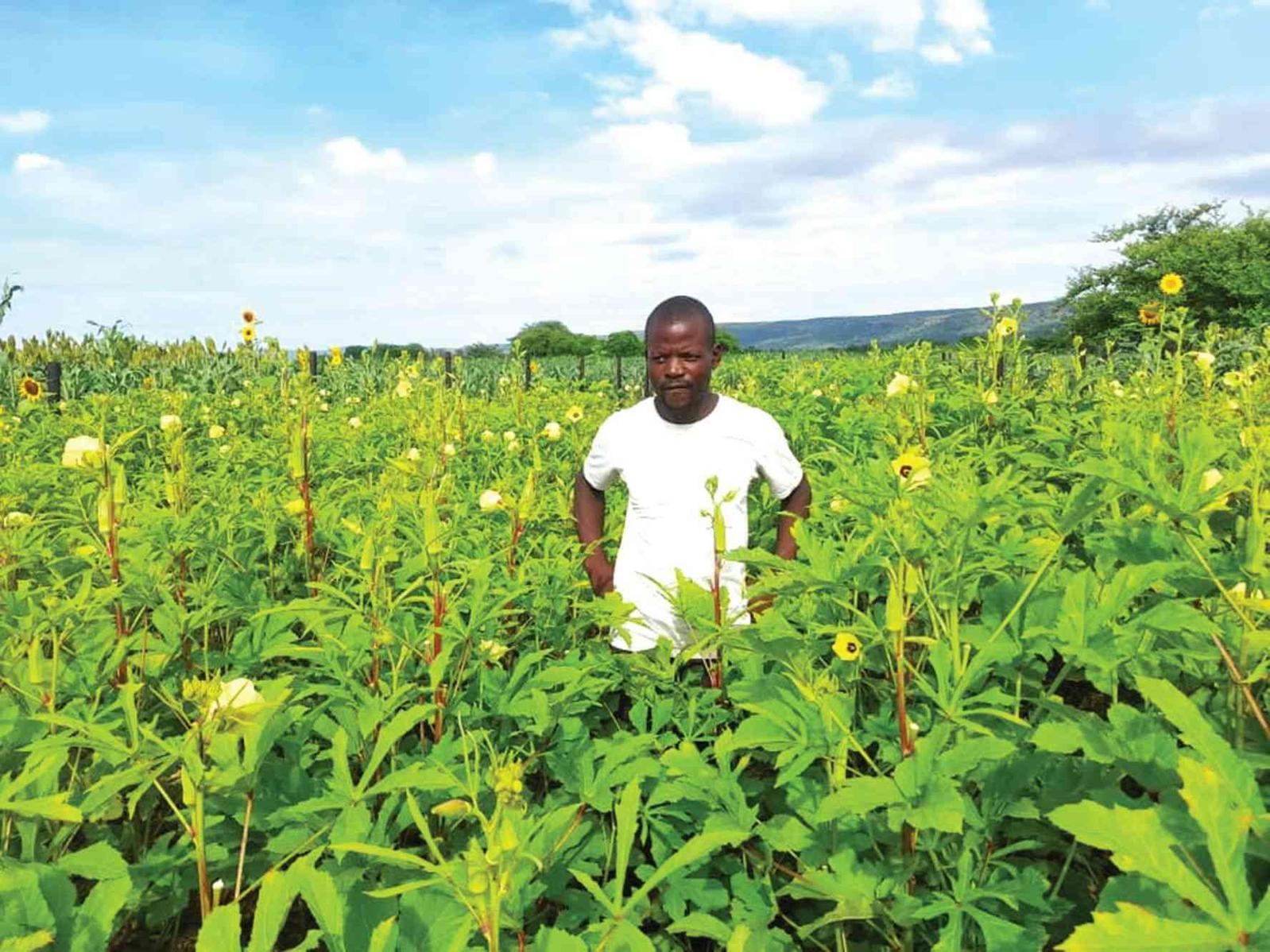Africa-Press – Zimbabwe. The sun beat down on the parched earth of Kariba Rural, reflecting the harsh realities of life for First Siyampeya, a 37-year-old man from Negande village in Siakobvu. For years, his 0,5 hectares of land yielded a meagre harvest, earning him approximately US$150 per cropping cycle.
“It was a struggle,” Siyampeya recalls, his hardened hands tracing the lines carved into his palms.
“Each season, I’d hoped for a miracle, but the crops were weak and the yields low because I relied on synthetic pesticides and lacked knowledge on integrated pest management and moisture conservation techniques, which reduced crop resilience.”
Like many farmers in the region, Siyampeya relied on traditional farming methods, unaware of pollinators’ crucial role in his crops. The buzzing of bees and the fluttering of butterflies were simply part of the background, unnoticed and unappreciated.
Then came the intervention, the Reversing Environmental Degradation in Africa an Asia-funded project targeting 158 farmers in Kariba and Gokwe districts. The community-led adaptation of the Farming with Alternative Pollinators project, led by Nutrition Action Zimbabwe, aimed at ecosystem restoration, improved household nutrition outcomes and climate resilience for vulnerable communities.
Through the project, Siyampeya received critical support to enhance his farming practices. He received fencing materials for a 10mx50m garden, seeds for okra, watermelon, pumpkin, coriander, cucumber and training on climate change, farming with alternative pollinators, pollinator monitoring, marketing, compost making, biofertiliser making and soil and water conservation techniques.
He applied the new skills and techniques, leading to remarkable improvement in his farming outcomes. Siyampeya reduced irrigation frequency, increased pollinator abundance and boosted yields and crop quality. By adopting non-chemical pest control mechanisms, he successfully managed pests and diseases.
“I learned how the decline in pollinator populations, due to habitat loss and pesticide use, was impacting yields, and I was shown how to create habitats for native pollinators, using flowering plants,” he told NewsDay.
Among the seed inputs was the coriander that attracts pollinators due to its small, white flowers, which are a good source of nectar and pollen. I planted these around the plot.
“The change was gradual, but undeniable. The crops began to flourish. The air hummed with the sound of bees and butterflies danced among the flowers. It was like magic, the pollinators were like my silent workers, working tirelessly to improve my harvest.”
The impact on Siyampeya’s livelihood was profound. His harvests were impressive, harvesting 360 plates of okra, 73 watermelons, 102 pumpkins, 55 bundles of pumpkin leaves and 61 cucumbers. He sold surplus produce, earning over US$450 for his first cropping cycle.
“I am amazed by the power of pollinators and the simple yet effective techniques of soil and moisture conservation. My bumper harvest is a testament to the impact of these approaches. I am grateful for the project’s support and look forward to continuing to improve my farming practices,” he said.
Siyampeya purchased three goats, seven road runner chickens and paid school fees for his children from the money he earned from selling the surplus. Increasing his livestock enables him to diversify income streams and enhance resilience to climate change.
Siyampeya’s success is a testament to the power of sustainable farming practices and the importance of recognising the vital role of pollinators. He is now a passionate advocate for farming with alternative pollinators, sharing his knowledge with other farmers in his community and preparing his land for the second cropping cycle.
Working with partners like government agriculture extension officers, Action Contre LaFaim, MyTrees and Poret, the three-year pilot project is championing biodiversity preservation and food security.
The world yesterday celebrated World Bee Day under the theme Bee inspired by nature to nourish us all.
For More News And Analysis About Zimbabwe Follow Africa-Press






